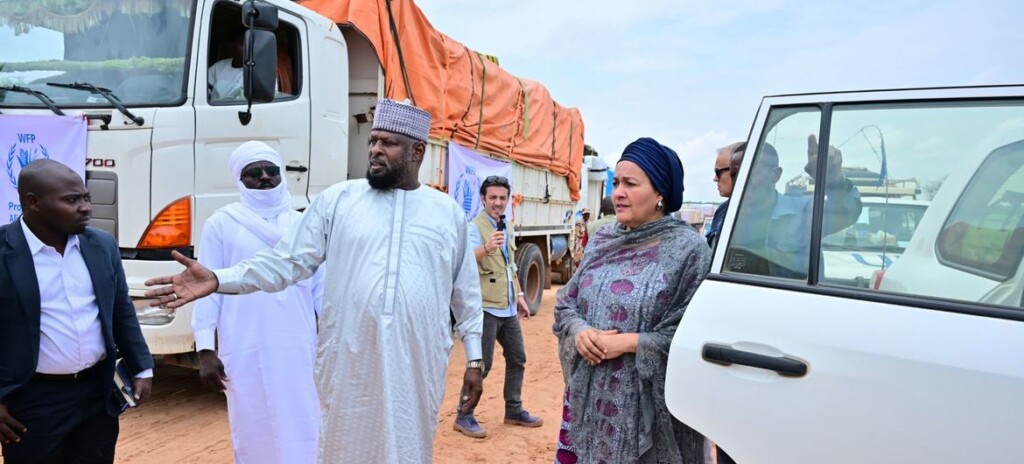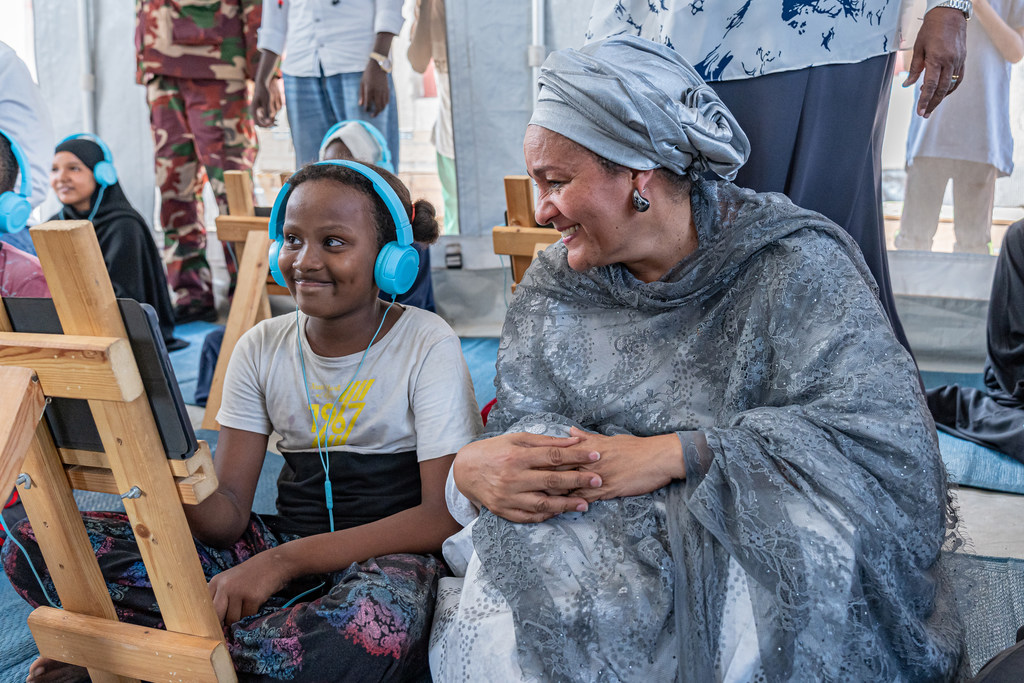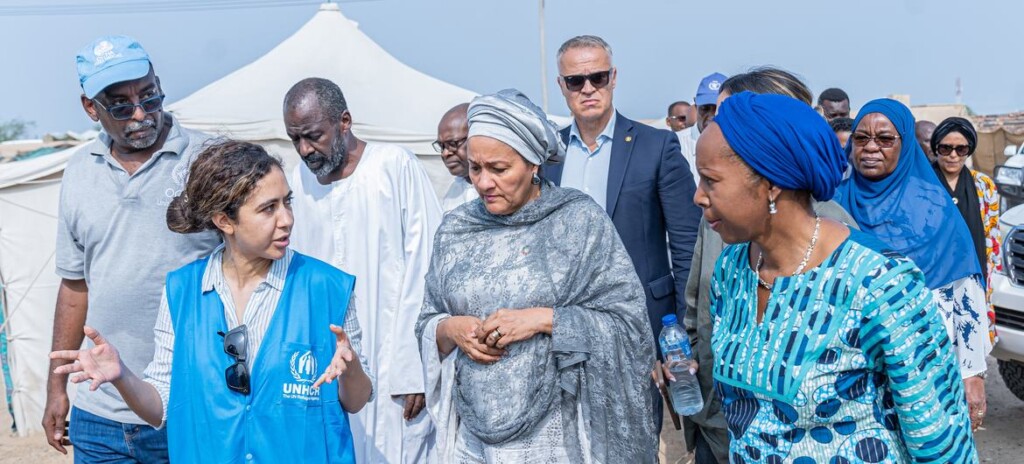Crises in Sudan and East Africa: UN deputy chief appeals for global solidarity

UN Deputy Secretary-General Amina Mohammed visits Adré on the Sudan-Chad border (Photo: UN / Daniel Getachew)
UN Deputy Secretary-General Amina Mohammed has called on the international community for solidarity to address the crises in Sudan and East Africa, following her regional visit to Sudan and Chad that concluded on Friday. Mohammed met officials in Chad and announced a $5 million allocation from the UN’s Central Emergency Response Fund (CERF) as part of a rapid response towards supporting flood recovery efforts.
Chad hosts more than 1.1 million refugees, many escaping violence in Sudan, where rival militaries have been fighting since April 2023. At the same time, the war has also triggered colossal suffering within Sudan’s borders.

“The humanitarian task that we have in Sudan has been very big,” UN Deputy Secretary-General Mohammed said. “It has been one that we have been consistently supporting the government to try to address the crisis. The suffering of the people in this country is one of the worst crises in the world today.”
Region in crisis
Chad and neighbouring Sudan have been grappling with multiple crises. That includes the ongoing Sudanese war and recent floods affecting 960,000 people in Chad and 310,000 in Sudan, according to UN agencies.
Discussions between the UN deputy chief and local authorities in Chad centred on the complex challenges facing the country, including regional dynamics and key risks, and highlighted “the urgent need for global solidarity”, the UN Spokesperson Stéphane Dujarric told reporters.
Reaffirming the UN’s commitment, Mohammed called for “maximum solidarity and resources” to ensure the humanitarian response fulfils its mandate and supports the people of the region, urging parties “to invest more in saving lives and livelihoods”.

‘Vital lifeline for aid delivery’
While in Chad, Mohammed observed the humanitarian corridor operation at the newly opened Adré crossing point into Sudan and engaged with refugee representatives, women, youth and community leaders, welcoming the recent opening as “a positive step” towards providing lifesaving aid in Sudan.
“This crossing is a vital lifeline for aid delivery to millions in Sudan and must remain open and accessible to facilitate large-scale humanitarian assistance while ensuring the safety of aid workers,” according to the UN Spokesperson.
‘We have to match the openings of these borders with aid resources … and so we need those resources, and we need them now…’ – UN Deputy Secretary-General Amina Mohammed
‘We need resources now’
The UN deputy chief underlined the critical importance of keeping the border crossing permanently open.
The Adré crossing is the most effective and shortest route to deliver humanitarian assistance into Sudan – and particularly the Darfur region – at the scale and speed required to respond to the immense hunger crisis.
“What we have to do is to match the openings of these borders with the aid that goes in, and that means resources,” she insisted, “and so we need those resources, and we need them now.”
When visiting Sudan earlier this week, Mohammed met with the country’s President and cabinet members, who agreed that the Jeddah peace process must be implemented swiftly. She emphasised that “there is consensus there, and there is no reason why that cannot be moved forward.”
However, the discussion largely focussed on the humanitarian agenda and “the urgency of this”, she told reporters at a press conference in Port Sudan on Thursday.
She said efforts are addressing the Sudanese government’s legitimate concerns and setting up procedures that “would ensure this aid gets to people where it’s meant.
‘Crisis around famine’
“We have impending crisis around famine,” Mohammed said. “We are not getting medical supplies in where there are health crises. But, more importantly, we have to remember the suffering of the people, and we are here to do this with the government of Sudan.”
“What we have done is to sit down with the humanitarian aid commission, and then we have had discussions on how, first of all, not to stop any of the aid that is available right now going in,” she explained.











 and then
and then